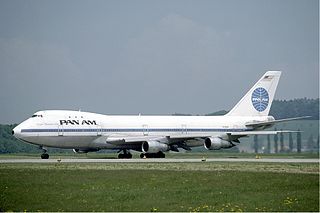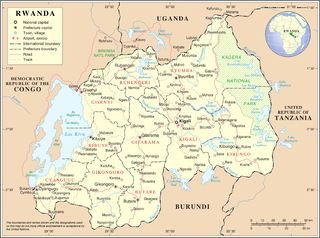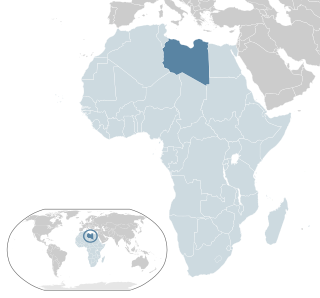
The United Nations Security Council (UNSC) is one of the six principal organs of the United Nations (UN) and is charged with ensuring international peace and security, recommending the admission of new UN members to the General Assembly, and approving any changes to the UN Charter. Its powers as outlined in the United Nations Charter include establishing peacekeeping operations, enacting international sanctions, and authorizing military action. The UNSC is the only UN body with authority to issue resolutions that are binding on member states.

The member states of the United Nations comprise 193 sovereign states. The United Nations (UN) is the world's largest intergovernmental organization. All members have equal representation in the UN General Assembly.

A United Nations Security Council resolution (UNSCR) is a United Nations resolution adopted by the Security Council (UNSC), the United Nations (UN) 15-member body charged with "primary responsibility for the maintenance of international peace and security".

The United Nations Organization Stabilization Mission in the Democratic Republic of the Congo, or MONUSCO, is a United Nations peacekeeping force in the Democratic Republic of the Congo (DRC). A planned withdrawal from the country is currently on indefinite hold due to the unstable security situation.

United Nations Security Council Resolution 83, adopted on June 27, 1950, determined that the attack on the Republic of Korea by forces from North Korea constituted a breach of the peace. The Council called for an immediate cessation of hostilities and for the authorities in North Korea to withdraw their armed forces to the 38th parallel. They also noted the report by the United Nations Commission on Korea that stated North Korea's failure to comply with Security Council Resolution 82 and that urgent military measures were required to restore international peace and security.

The United Nations Mission in the Central African Republic and Chad (MINURCAT) was a United Nations peacekeeping mission established by the United Nations Security Council on September 25, 2007 to provide a multidimensional presence of up to 350 police and military personnel to eastern Chad and north-eastern Central African Republic

There are no formal bilateral relations between the State of Israel and the Republic of Niger. Diplomatic relations between the countries were active between the independence of Niger in 1960 and 1973. Relations were renormalised in 1996, but terminated by Niger in 2002. There are no special travel or trade restrictions between citizens of the nations.

The Group of Eastern European States (EEG) is one of the five United Nations regional groups and is composed of 23 Member States from Eastern, Central and Southern Europe.

UN Security Council Resolution 731 was adopted unanimously on 21 January 1992, after the Council recalled resolutions 286 (1970) and 635 (1989), which condemned acts of terrorism; the Council expressed concern over the results of investigations into the destruction of Pan Am Flight 103 over Lockerbie, Scotland, and UTA Flight 772 over Chad and Niger, which implicated officials from the Government of Libya.

UN Security Council Resolution 748, adopted unanimously on 31 March 1992, after reaffirming Resolution 731 (1992), the UN Security Council decided, under Chapter VII of the United Nations Charter, that demanded Government of Libya's immediate compliance with requests from investigations relating to the destruction of Pan Am Flight 103 over Lockerbie and UTA Flight 772 over Chad and Niger, calling on Libya to cease all forms of terrorist action and assistance to terrorist groups. To this end, the council imposed sanctions on Libya until Libya complied.

UN Security Council Resolution 1192, adopted unanimously on 27 August 1998, after recalling resolutions 731 (1992), 748 (1992) and 883 (1993), the council welcomed an initiative to try two Libyan suspects accused of the bombing of Pan Am Flight 103 before a Scottish court in the Netherlands.

United Nations Security Council resolution 1200, adopted unanimously on 30 September 1998, after recalling resolutions 955 (1994), 989 (1995) and 1165 (1998), the Council forwarded 18 nominations for judges at the International Criminal Tribunal for Rwanda (ICTR) to the General Assembly for consideration.

United Nations Security Council resolution 1506, adopted on 12 September 2003, after recalling resolutions 731 (1992), 748 (1992), 883 (1993) and 1192 (1998) concerning the destruction of Pan Am Flight 103 over Lockerbie, Scotland in 1988 and UTA Flight 772 over Niger in 1989, the council lifted sanctions against Libya imposed after the country failed to co-operate with investigations into the destruction of the aircraft.

The United Nations Supervision Mission in Syria (UNSMIS) was a United Nations peacekeeping mission in Syria, set up in 2012 as a result of United Nations Security Council Resolution 2043 in response to the Syrian Civil War. It was commanded by Norwegian Major General Robert Mood until 20 July 2012 followed by Lieutenant General Babacar Gaye from Senegal. Although observers remain in the country, Mood suspended their mission on June 16, 2012, citing "escalating violence". Observers will conduct no further patrols and stay in their current positions until the suspension is lifted. On 20 July 2012, the Security Council extended UNSMIS for a final period of 30 days. According to resolution 2059, the Council would only consider more extensions in the event that the Secretary-General reports and the Security Council confirms the cessation of the use of heavy weapons and a reduction in the level of violence sufficient by all sides to allow UNSMIS to implement its mandate.

The permanent members of the United Nations Security Council are the five sovereign states to whom the UN Charter of 1945 grants a permanent seat on the UN Security Council: China, France, Russia, United Kingdom, and United States.

The 1977 United Nations Security Council election was held on 24 October 1977 during the Thirty-second session of the United Nations General Assembly, held at United Nations Headquarters in New York City. The General Assembly elected Bolivia, Czechoslovakia, Gabon, Kuwait, and Nigeria, as the five new non-permanent members of the UN Security Council for two-year mandates commencing on 1 January 1978. Gabon and Kuwait were elected to the Council for the first time.
The Declaration on the Rights of Peasants is a United Nations General Assembly resolution on human rights with "universal understanding", adopted by the United Nations in 2018. The resolution was passed by a vote of 121-8, with 54 members abstaining.











